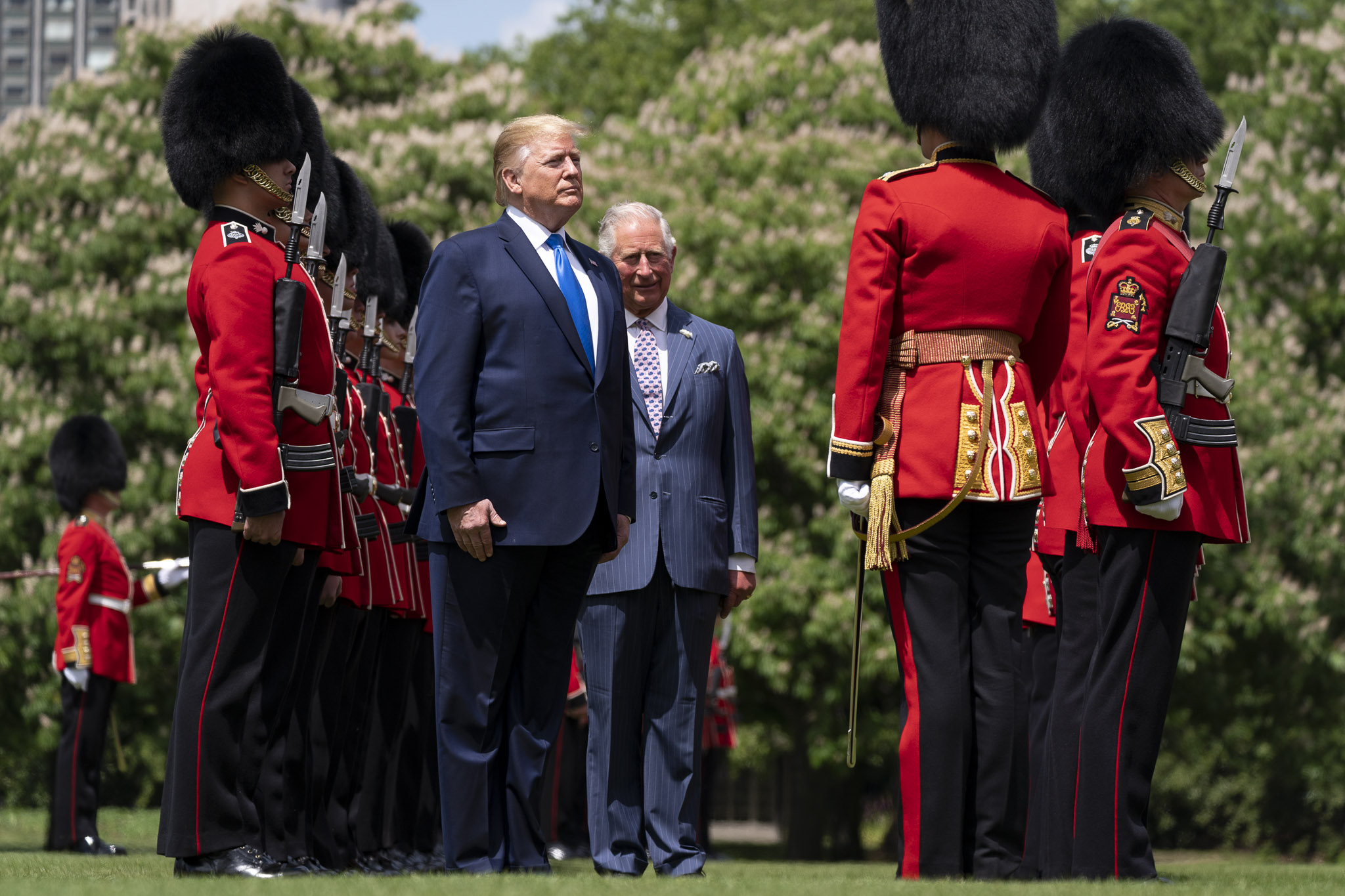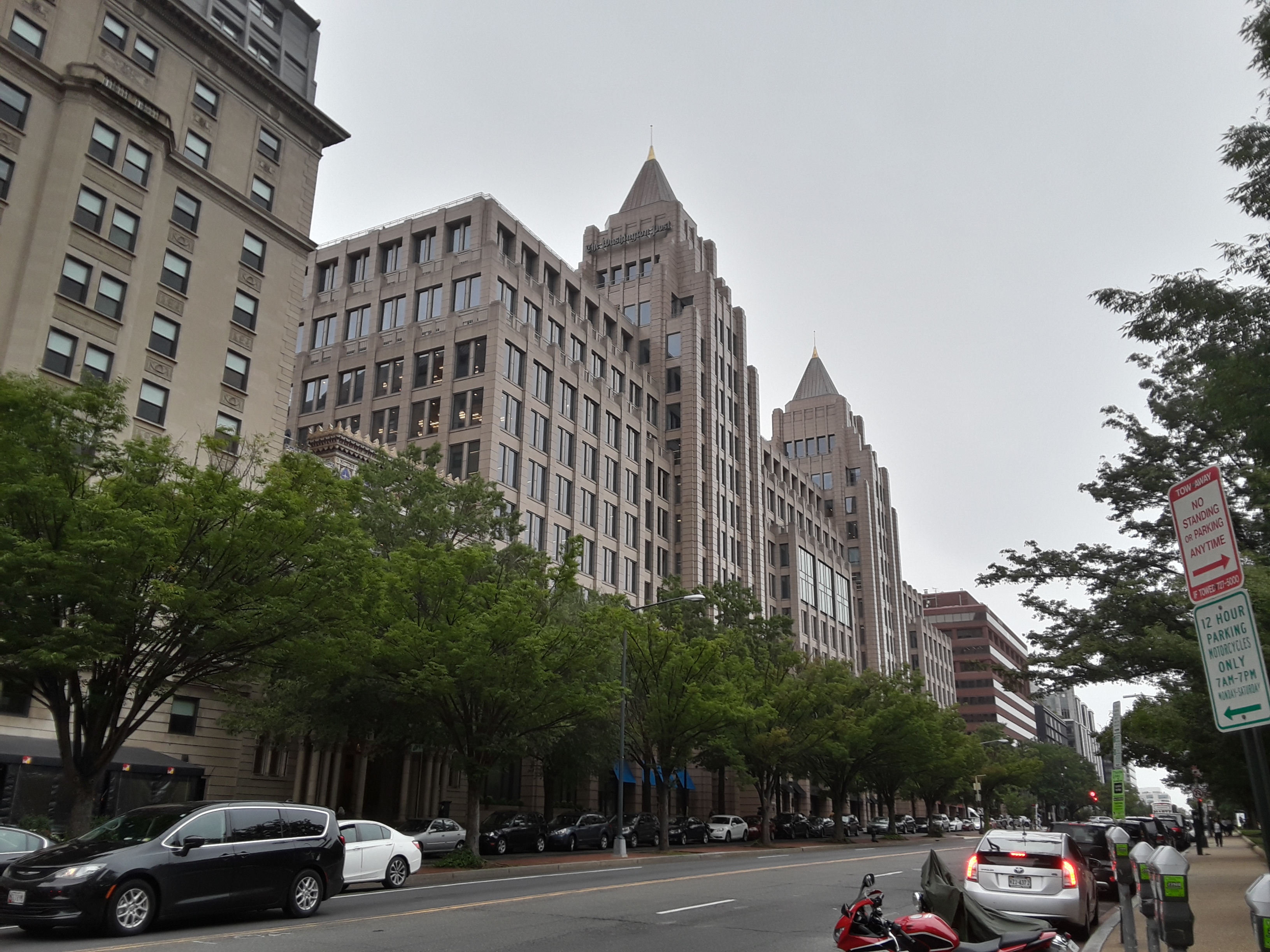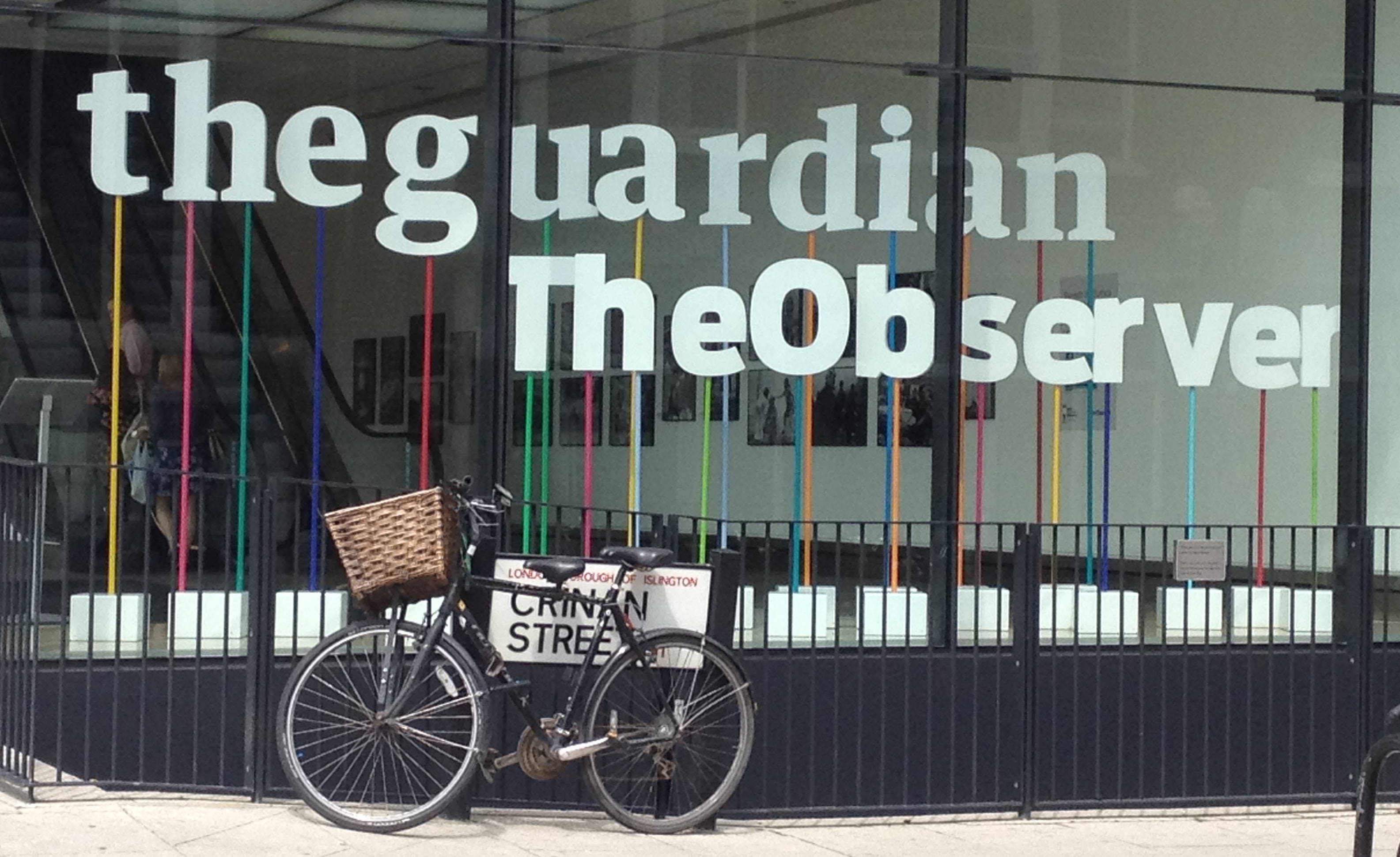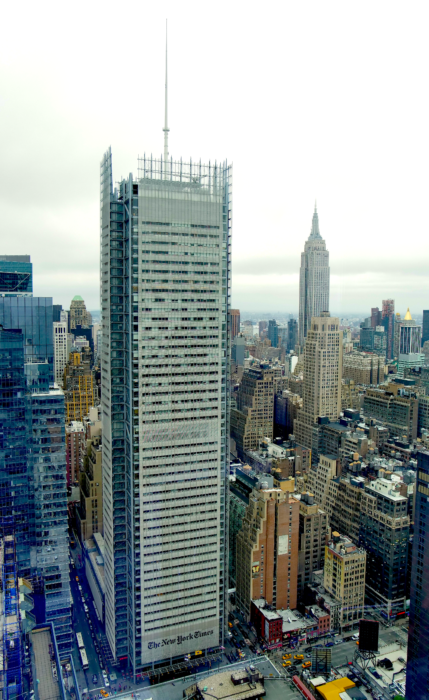The media outlets that have suddenly rushed to Assange’s cause are doing so out of self-protection, writes Jonathan Cook, not legal or journalistic principle.
By JonathanCook
Jonathan-Cook.net
 A few corporate media publications have finally come out in very half-hearted support of Julian Assange — after years of stabbing him in the back at every opportunity. These outlets, including the Guardian, The Washington Post and The New York Times, have found their voice very belatedly, only after the Trump administration revealed last week that it plans to lock Assange away for the rest of his life on espionage charges. His crime on the charge-sheet: more than a decade ago he published evidence of U.S. war crimes committed in Iraq.
A few corporate media publications have finally come out in very half-hearted support of Julian Assange — after years of stabbing him in the back at every opportunity. These outlets, including the Guardian, The Washington Post and The New York Times, have found their voice very belatedly, only after the Trump administration revealed last week that it plans to lock Assange away for the rest of his life on espionage charges. His crime on the charge-sheet: more than a decade ago he published evidence of U.S. war crimes committed in Iraq.
The journalistic “resistance” claims to be coming to Assange’s defense out of principle: if he is jailed for espionage, journalism itself will be criminalized. And they are most definitely right about that. But their sudden conversion to Assange’s cause is not really about principle – legal or journalistic. It is rooted solely in an urge for self-protection.
The papers that have rushed so very late in the day to Assange’s side, after the Trump administration announced moves to charge and extradite him, are also those who worked most closely with WikiLeaks — in a distant past, long before they turned on him.
The Guardian published a mealy-mouthed commentary from its former editor Alan Rusbridger. He spent part of his short space reminding us how unlikeable Assange is — as though that had anything to do with the rights and wrongs of the Trump administration’s case and as though Assange wasn’t so vulnerable now to Washington’s ire precisely because papers like the Guardian have worked so hard to isolate and demonize him.
The Washington Post, a little more honorably, gave room to Glenn Greenwald, an expert in U.S. constitutional law, to make a persuasive case for Assange based on journalistic, ethical and legal principles.
Fabricated Story
Let’s be clear, however. Both publications care nothing for Assange or the ordeal he has been through over the past nine years. Or the ordeal he faces if the U.S. gets its hands on him.
For years the corporate media ignored the overwhelming evidence that a secret U.S. grand jury had been convened to drum up charges against Assange.
They similarly ignored the reason for the physical and mental torture and financial penalties inflicted on Chelsea Manning, which were intended to extract false testimony that might make the phony espionage charges look a little plausible in court.
The media have ignored the endless examples of legal abuse Assange has suffered at the hands of the U.K. and Sweden, long before the U.S. threw its own soiled hat into the ring, as I recently documented here.
The media are still ignoring such abuses, including Assange’s year-long solitary confinement in Belmarsh, a high-security U.K. prison, for a minor breach of police bail.
And so far the corporate media have been ignoring reports that Assange is so ill, or possibly so drugged by the authorities, that his lawyer is unable to work with him on his defense.
In the case of the Guardian, the paper even fabricated a story out of whole cloth to try to create a nefarious connection between Assange and the Trump administration. Months later the paper has not only failed to provide a shred of evidence for its fantastical story but has gone to ground, refusing to answer any questions about it.
In the Firing Line
Rather than address the important legal, political and journalistic questions surrounding the Assange case, the Guardian and other papers that collaborated with him turned his persecution into nothing more than a simple-minded Hollywood drama, with Assange reduced to the satirical description offered by Australian journalist Caitlin Johnstone of a “stinky Nazi rapist Putin puppet Trump supporter.”
No, the reason why the Guardian, The Washington Post, The New York Times and other media suddenly care about Assange’s fate has nothing to do with principle — legal or journalistic. It has nothing to do with the First Amendment, which has been under threat since Assange was forced to hole up in Ecuador’s embassy in 2012, after he was granted political asylum.
These same newspapers ignored the political reasons Assange was in the embassy so they could pretend he had simply run away from a sexual assault investigation in Sweden. They also ignored or ridiculed the ruling in 2016 of the United Nations Working Group on Arbitrary Detention, some of the world’s foremost legal experts who found that the U.K. and Sweden were violating international law and Assange’s most basic rights in keeping him locked up in the embassy. The Guardian mocked the ruling as a “publicity stunt.”
No, the reason these papers now care about Assange nine years too late is because for the first time they are specifically in the firing line too. They collaborated with him on the very matters — U.S. war crimes — he now faces extradition over. If Assange goes down as a spy for his activities as a journalist, these papers and their editors could end up in trouble too, exposed to the threat of espionage charges themselves.
Out of Danger
But in truth they won’t end up in prison — and deep down, in the recesses of their subconscious, they know it. The Trump administration isn’t stupid enough to start locking up the editors of the Anglophone world’s most venerable “liberal” media outlets.
President Donald Trump is sending a message, like most of his predecessors have done. President Barack Obama targeted the other end of the information supply chain, incarcerating a record number of whistleblowers. Trump is directly targeting the conduit for this whistleblowing information: WikiLeaks and Assange.

Trump and Prince Charles inspect guards at Buckingham Palace, June 3, 2019 in London. (White House/ Shealah Craighead)
For a short while, the corporate media felt compelled to join Assange and WikiLeaks in the information revolution he championed. They thought they would be out of business if they didn’t. For a brief moment they sided with the poachers, not the gamekeepers. They joined and helped Wikileaks in disclosing state secrets of the kind we desperately need to know.
Would the Iraq war have been possible, would the sexed-up dossier or the WMD claims have withstood the test of a whistleblowing platform like WikiLeaks had it existed back in 2002 and 2003? It is doubtless a question that much exercises the minds of U.S. and U.K. policy planners.
Blocking Real News
What a difference 15 years have made. These newspapers that briefly rode the WikiLeaks wave of truth-telling are now the newspapers that have joined their respective security states in preventing real news emerging about places like Venezuela and Syria.
The Guardian, which once collaborated with WikiLeaks, has still not mentioned a leaked document from the Organisation for the Prohibition of Chemical Weapons – a document the OPCW has confirmed is genuine. It indicates that the Syrian government of Bashar Assad was most likely not responsible for a chemical weapons attack in Douma last year that western governments used as justification for a wave of Cruise missile attacks on Syria.
The document throws into question the entire role of the OPCW and whether it has become coopted by western security states. But none of the esteemed corporate media, it seems, want their readers to know. Academics researching this issue report: “Journalists who have been in touch with us have told us that their stories [on the OPCW leak] were spiked by editors.”
Instead the corporate media has reined itself back in.
Long ago western media publications were bought out by a handful of giant corporations, global business empires whose interests encompass much else: from real estate and communications to arms-dealing and wars. The journalists in these media corporations grew ever fatter, ever lazier and ever more uncritical. They were selected and promoted for a special kind of cleverness, which intuitively understands where the interests of power and wealth reside, where they must tread cautiously and where they can stomp around unhindered, and how to sell their obedience as tenacious truth-digging.

Washington Post’s new headquarters building, One Franklin Square, in D.C. (Ser Amantio di Nicolao, CC BY-SA 4.0, via Wikimedia Commons.)
These journalists and editors will feebly defend Assange’s legal rights — to the bare minimum necessary to ensure that they themselves do not end up in the dock, and so they can pretend to themselves and others that they fought for a principle.
But if Assange is locked up, we can be sure they will not join him behind bars. They face no real risk of incarceration. They will simply do what they and their predecessors have always done. They will learn and adapt. They will trim their sails a little tighter, they will conceal their self-censorship more astutely, and they will become even more craven to the powerful than they already were.
The fight by the Guardian, the Post and the Times is not for the principles of a more truthful society Assange committed himself to. Their fight is for their consciences, so they can sleep a little easier at night, so that they can carry on believing they are what they never were: a watchdog on power.
Their fight is to uphold a lie, a lie about themselves.
Jonathan Cook is a freelance journalist based in Nazareth. This article first appeared on his blog at Jonathan Cook.net.




The Guardian is an abomination these days, an intersectionality, anti-Trump, anti-Brexit, anti-Assange fanzine. Anyone who fails to accept every last jot and tittle is considered far-right, racist yadda yadda and can be abused in comment threads while the biased moderators look the other way Example: police march masked Islamist thugs miles to a family friendly MEP campaign event, let them throw rocks and bottles at women and children, justifying this as facilitating protest. Any decent paper would have condemned this but the Guardian did not.
“Don’t Be Fooled: Media Still Selling Out Assange”
“Hope” is a facilitator and vector of coercion whose potency increases by predisposition of reliance on belief.
One man’s life has been ruined and most are silent. Fear and/or being oblivious to the injustice that has been heaped on Julian Assange, Chelsea Manning and Edward Snowden and allowed by us, the people, can not be allowed to continue if we are to have any claim whatsoever to being a free country. These men, like each one of us, has but one life to live. And that life is being destroyed right in front if each of us. How much longer?
This is the tragedy of our present situation: the sacrifices that these people have made, their bravery and brilliance, have not penetrated the thick layer of ignorance and misinformation in society. Will it ever change? Will everything have to collapse first?
Yes! Thank you Jonathan Cook. You are a treasure.
If only your article were read and absorbed by mainstream Democrats. Unfortunately, they seem either bought or brainwashed to the extent that they accept whatever corporate media tells them. Can Bernie or someone wake them up before its too late? Seems doubtful, but we must all keep trying.
I will post them to my small Oakmont Progressives Facebook page.
Screw the mainstream Democrats as they and the Party they throw their allegiance behind are unworthy of our pity.
Unfortunately, most people are passive consumers of MSM propaganda rather than critical thinkers. It would be nice to find a way to get alternative messages like this article to larger audiences with the hope that at least a few folks would wake up. Just singing to the choir at sites like this one leave us in “a sound proof free speech zone.” It may help to keep us sane, but it does little for the rest of society. I constantly recommend this site and others like ICH with the hope of enlarging our audience. Breaking the power of the MSM narrative is critical for our future survival.
Right on target.
Yes, I 100% second that.
Also, defending Assange this once is another opportunity to bash Trump, which is their highest priority.
I think that’s it in a nutshell. I doubt the NYT and WaPo are suddenly worried that at some point they will slip and commit journalism.
Oh dear God, that is so true and so utterly depressing!
But thanks for putting it so clearly
Spot on!
The giddy belief that Talking Head media has seen the light about Julian Assange is premature, at best, and damnably dangerous at worst.
The MSM is primarily motivated by money and, secondarily, by the intent to control the realm of permissible thought and discussion, else their corporate owners, the six such corporate owners in the U$, would not be drawn to seek such ownership.
These same corporate entities are threatened by revelations which expose criminal behavior of governments which are also wholly owned subsidiaries of these very same media owners or major advertisers on that media.
Profiting from controlling information can remain lucrative and all powerful only if voices of revelation and insight may be silenced, either directly or through effective intimidation, as even little voices pose a real threat to Big Money and Brute Power.
When the many begin to think, to be less divided and confused by wealth and power, then must the elites act in concert to erase dangerous thought and inculcate group-think as a self-regulating internal censor which operates twenty-four seven to isolate and denigrate any deemed a threat to the circled wagons of conventional wisdom and more of the same.
I continuingbsporeciation to all who dare engage in critical thought and the willingness to share whateverbit mat be that they think upon with the rest of us.
When critical thought is ostracized and insightful revelation demonized, then humanity is on the cusp of either another dark age or the possibility of widespread enlightenment.
Whatever it turns out to be, any pretense of “neutral” observation is patent absurdity when life itself hangs in the balance.
And that is the precise nature of this moment.
Fraught, as it most necessarily must be, we live in a truly interesting time.
One that many of us, if we are honest, we have been preparing for … for most of our lives.
Any who claim to be surprised, have simply not been paying attention.
We shall either discover our common humanity or destroy it altogether.
thank you Jonathan.